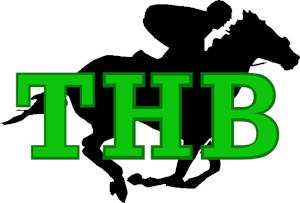By betting on the jockey insted of the horse, you decide to prioritize know-how, expertise, track record, and character. The basic premise is that betting on the best leader raises the chances of success.
The Importance of the Jockey
Role of the jockey in horse racing
The jockey plays a major role in horse racing – they aren’t just riders. They’re strategic thinkers, who steer the horse towards victory. A jockey’s split-second decisions, based on intuition and experience in the moment, and the overall strategy for the race, can determine whether that race is won or lost.
Jockeys must know each horse’s strengths and weaknesses so they can choose the optimal riding strategy for the track conditions.
The jockey is also responsible for strategic positioning during the race to gives the horse the best chance to win.
Communication skills are also key. Jockeys must collaborate not only with the horse, but with owners and trainers. This collaborative feedback from an experienced jockey will naturally lead to increased performance if the horse is capable.
Frankie Dettori’s incredible feat at Royal Ascot in 1996 is a great example of the jockey’s power. He won all seven races on the same day – a testament to his exceptional riding and decision-making abilities.
All in all, jockeys are more than just riders – they are strategists. With their expertise and teamwork, ordinary horses can become champions and create unforgettable moments in racing history.
Jockey skills and strategies
Good jockeys have an instinctive aptitude for interpreting their horses, adapting his or her inputs and commands to the current track and competition conditions. They make decisions quickly during the race, varying their position to take advantage of openings and dodge other horses (and whips!).
A jockey’s incredible horsemanship leads to a horse performing its best. Choosing optimal racing lines and recognizing when to save energy for that last sprint to the finish line.
Moreover, a talented jockey forms a strong connection with the horse, tapping into its competitive nature and earning its agreement to do what the jockey asks. Horse and jockey must spend time learning each other’s capabilities and restrictions to build that competitive trust. This earned rapport lets the jockey communicate subtly with the horse through body language and verbally, guiding it through turns or egging it on in that vital moment of attack.
Experienced jockeys know their competitors’ riding styles and behaviors. They look at past races, investigating the advantages and disadvantages of their adversaries. With this knowledge, they can strategically gain an advantage over their opponents and use any weak point to get an edge during the race.
Assessing the Jockey’s Track Record
How to evaluate a jockey’s past performance
Evaluating a jockey’s past performance is key to making informed betting decisions. Building your knowledge of the jockeys that ride the horses you bet on is a great opportunity to increase your horse betting skills.
Assessing the jockey’s track record reveals insights into their skills, consistency, and ability to perform under pressure.
There are several factors to consider:
- The jockey’s win percentage.
- Their record at different racecourses.
- The length of races they have won.
- Their partnerships with specific trainers.
- The quality of horses they have ridden.
- Recent form or trends in their performance.
These clues help build a clearer picture of a jockey’s abilities and likelihood of success.
Veteran jockeys often have an edge due to their experience. For example, Jerry Bailey won over 5,700 races in his career and was inducted into the Jockey Club Hall of Fame.
So, the more race history a jockey has on equivalent level of horses and tracks, the more you can factor the jockey into your betting strategy.
Considering the jockey’s success rate
For assessing a race, the jockey’s success rate is key. It reflects their past performances and wins, implying a similar effect on future races. Checking the jockey’s success rate can help horse racing fans pick winning horses with greater frequency.
It often helps to build a database of jockey performance. This table should include as many relevant data points as possible to enable bettors to pick ones with consistent records. It can also uncover patterns, like a jockey being better on certain tracks or in rain conditions.
“American Turf Monthly” magazine states that successful jockeys have skills in riding, decision-making, and forming connections with horses. Reviewing the jockey’s success rate is more than just stats; it’s an informed evaluation of their capabilities which has an immediate impact on a horse’s ability to win.
By considering the jockey’s track record, bettors can make wiser decisions and enhance their betting success.
Factors to Consider when Betting on the Jockey
To make an informed bet on the jockey, consider the jockey’s experience and reputation, as well as their relationship and compatibility with the horse.
Jockey experience and reputation
When betting on a jockey, their experience and reputation are essential. A skilled, respected jockey understands the horse’s abilities and can make solid decisions during the race.
Factors impacted by a jockey’s experience include knowing when to hold back, when to release, how to time the final sprint, positioning, commands, how to manage a tired or injured horse, etc.
Experience is a must. Jockeys need to know different tracks and how to race them properly. Experience helps them strategize better. Where is the fast line in the rain? Is there a kink in the fence that will push horses off line, allowing a pass? How does the surface and camber help or hinder at different points on the track?
Reputation matters. Successful jockeys who consistently get good results earn a good rep in the industry. This leads to riding higher quality horses with higher chances of success. Bookmakers and experienced bettors take the jockey’s rep into account when assessing potential race outcomes.
(On the flip side of the reputation point, there have been many jockeys willing to manipulate the odds by holding a horse back or riding it too fast out of the gate. By causing their horse to lose intentionally, it increases the payout of other horses — potentially to an extreme level in the case of long odds horse.)
Famous jockeys like Frankie Dettori, who has won the Prix de l’Arc de Triomphe, have a strong influence in betting. Their track records and achievements are valuable indicators for placing horse bets.
Finding the perfect jockey-horse duo is like finding the perfect soulmate – both have to run in sync together!
The horse-jockey relationship
The jockey-horse partnership is key to a winning race. The jockey’s relationship and compatibility with the horse matters hugely.
First, the jockey must understand the horse’s temperament and racing style. They must also build trust with the horse.
Physical attributes of both jockey and horse also count. The jockey’s size and weight should suit the horse. Plus, the jockey’s experience level should fit the horse’s complexity and temperment.
Consider Eddie Arcaro and Citation in the 1940s. Arcaro knew Citation like no other. They won major races together, including the Triple Crown in 1948.
Counterargument: Betting on the Horse
Why bet only on the horse?
As the quality of horses goes up in the major stakes races, the quality of jockeys also rises. You can make the argument that this evens out the effects of jockeys across the field, and the odds really just reflect the horse’s ability to win on race day.
Jockeys tend to be the far more consistent part of the equation. After all, they’re not the horse doing the racing and recovering week after week. Sure, jockeys get sick and injured, but their race is impacted less than if the horse gets sick or injured. A great jockey cannot make an injured horse win. So the jockey is simply less of a factor than the horse’s physical condition and recent performance.
Primary race statistics center on the horse’s performance. As horses are trained and developed, multiple jockeys ride them in different locations, whether for training at home or long distance flyaway races. For jockeys that are in demand, they may not be available to an owner for a particular race. So there are fewer reliable stats on jockeys as relates to a particular horse.
Other major factors outside the jockey’s control tend to impact a horse’s race performance. For example, how often the horse trains, and how intensely. How much investment in food and veterinary care the owner makes. And whether the horse is given performance-enhancing supplements and when. These are all decisions made by others outside the jockey’s control that directly impact a horse’s performance on race day.
The horse’s importance on race day
The horse’s importance in horse racing cannot be exaggerated. These beautiful animals are the core of the sport, displaying their elegance, power, and speed on the racetrack. Without them, the excitement and buzz associated with horse racing would not exist.
Every passionate bettor knows that when betting on horse races, understanding the horse is crucial. It is essential to research and analyze different aspects related to the horse itself.
The horse’s recent race record hints at its potential and reliability today. Factors like previous wins, finishing positions, and race times help assess its capability for success in future races.
Besides track record, understanding a horse’s pedigree can show its innate aptitude to do well in certain conditions or distances. If the horse is from a family with a record of success in long races, it may have an edge in long-distance races.
Factors such as training regimen and current injury status play crucial roles in determining a horse’s chances of winning.
So, embrace this knowledge with vigor and let it guide your choices when making those thrilling bets at the racetrack!
Steps to Analyze a Jockey Before Placing Your Bet
Here are five steps to follow:
- Track Record: Check the jockey’s past performance, such as their win percentage and achievements in prior races. This gives insight into their level of skill and consistency.
- Riding Style: Look at the jockey’s riding style and how it fits the horse. Some jockeys may excel at leading front-runners, while others may be good with late closers. Picking the right jockey for the horse greatly affects the race’s outcome.
- Experience: Take into account the jockey’s experience in different types of races and track conditions. Experienced jockeys know race dynamics and can adapt to various situations.
- Relationships: Analyze the connection between the jockey, trainer, and owner. A good bond can lead to better communication, strategies, and superior performance on race day.
- Physical Health: Factors like a jockey’s weight or injuries should be monitored. This gives valuable insights for evaluating potential bets.
A remarkable story is that of Frankie Dettori, an Italian jockey. In 1996, he won all seven races on one card at Ascot Racecourse in England. This amazing feat showed how important a talented jockey can be in winning races.
Summary
Analyzing the jockey is essential for placing successful horse racing bets. They bring special talents, such as decision-making and control over the horse’s speed. Their experience, rep, and communication with trainers boost their impact on races. Thinking about the jockey when betting gives valuable info and higher chances of making informed choices.
The jockey’s chemistry with the horse matters. Every horse has its own traits. An experienced jockey knows how to manage these complexities. This helps them perform better on race day. Knowing particular breeds or horses gives the jockey an edge in picking strategies.
The jockey’s track record gives hints about their skill and consistency. Examining their past successes, such as win rates, can show their reliability. A talented jockey with consistent good results gives confidence that they’ll make wise decisions during races.
Communication between the jockey, horse and trainer is critical for success. This ensures both are on the same page regarding strategy, horse conditioning, and speed bursts. This strong partnership contributes to better coordination during races and increases the chance of desired results.
Tip: Pay attention to not only famous jockeys, but also upcoming talents who might have special talents that could lead to surprising wins.
Before you take a chance with a horse, make sure you don’t end up with a jockey who believes ‘going the extra mile’ means a visit to the nearest pub.

I am Lawrence (aka “The Horse Better”). I spent 20+ years in financial risk management where I ran large-scale statistical betting models in complex situations. I grew up around horses and I’ve been betting on horse races for about 10 years with good success. I hope my articles provide good value!

